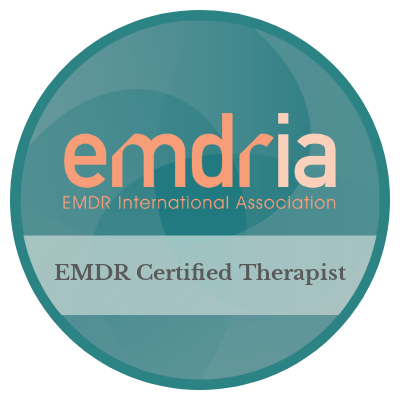Female Orgasmic Disorder
Write your awesome label here.
What Is Female Orgasmic Disorder?
Medical professionals often refer to female orgasmic disorder as anorgasmia, which is infrequent or delayed orgasms. Sometimes, women may not orgasm at all, resulting in frustration. Research shows that at least 5% to 10% of women have primary, or lifelong, anorgasmia. While every woman experiences an orgasm at different times and for various lengths, women who must work to reach climax may feel distressed, triggering emotional, mental, or physical concerns.
Anorgasmia refers to a wide range of orgasmic dysfunctions, classified into four types. These types are lifelong, acquired, situational, and generalized. All orgasms vary from one sexual encounter to the next, so it’s common for women not to reach climax every time they engage in sexual intercourse. However, if they’ve never had an orgasm, always struggle to have one, or they can only reach climax in certain situations, they may suffer from anorgasmia.
Anorgasmia refers to a wide range of orgasmic dysfunctions, classified into four types. These types are lifelong, acquired, situational, and generalized. All orgasms vary from one sexual encounter to the next, so it’s common for women not to reach climax every time they engage in sexual intercourse. However, if they’ve never had an orgasm, always struggle to have one, or they can only reach climax in certain situations, they may suffer from anorgasmia.
The four categories of anorgasmia are:
1. Lifelong: Never having an orgasm
2. Acquired: Developed problems having an orgasm
3. Situational: Difficulty reaching orgasm in specific situations
4. Generalized: Difficulty reaching orgasm in any situation
Symptoms of Female Orgasmic Disorder
What Causes the Inability to Orgasm in Women?
Physical Factors
A primary cause that prevents women from achieving orgasm is physical factors. Pregnancy, medications, pelvic floor dysfunction, gynecological treatments, or vaginal congenital conditions can make sex painful, preventing orgasm. Surgery, drugs, or treatments can also affect the clitoral nerves, making stimulation difficult. Some women may suffer from dyspareunia, pain during sex that keeps them from reaching climax. Endometriosis, medications, certain positions, or uterine fibroids are a few factors that can result in dyspareunia.
Medical Conditions
Any number of medical conditions can also contribute to anorgasmia. Cancer, multiple sclerosis, and other medical conditions can make sex painful. Vaginismus, the tightening of the vaginal muscles, is another common medical condition that triggers involuntary muscle spasms, making sexual intercourse uncomfortable or painful.
Hormonal Imbalances
Age-related issues like menopause, pregnancy, childbirth, and other hormonal imbalances will limit a woman’s ability to enjoy an orgasm. As the female body ages, estrogen levels decline, causing vaginal dryness, which prevents enjoyable sex. If a woman finds sex uncomfortable, it’s hard to reach climax.
Psychological Stressors
Women who take medications for mental health disorders may experience a shift in their sexual desires and encounters. Antidepressants, antipsychotics, or hormone replacement therapy can interfere with the female orgasmic response. Stress, anxiety, depression, or past trauma can keep women from enjoying sex with their partners. Talking about mental health struggles and female orgasmic disorders with a sex therapist and processing past trauma can help women break free from emotional bondage and relax during sexual intercourse.
Trauma
Emotional, physical, or sexual trauma will prevent a woman from reaching climax by herself or with a partner. Whether she’s suffered any form of trauma (sexual, emotional, or physical abuse or neglect), surgery, or relationship strain, a woman may have complex emotional impacts that lead to the inability to achieve orgasm.
Relationship Issues
When it comes to sexual intercourse, women initiate and respond on a deep, emotional level. Relationship issues such as a lack of trust, betrayal, or poor communication can keep women from enjoying a fulfilling sex life.
How Can Women Overcome Orgasmic Disorder?
Online Sexuality Education and Resources Can Help Women Recover From Sexual Dysfunction
Anorgasmia can occur in women because of medical issues, relationship disconnect, trauma, or a lack of confidence. This type of sexual dysfunction can prevent women from initiating sex, feeling aroused, or deepening a connection with their partner. MendEd’s sex therapists can provide female orgasmic disorder education and support to help women recover from this condition and improve overall sexual well-being. We offer online sexual education courses like From Sexual Distress to Sexual Satisfaction to help men and women discover the power of healing and how to prioritize sexual health.
Understand Sexual Health and Pleasure
Sexual dysfunction, like anorgasmia, is more common than most people think. We understand it’s hard to talk about sexual issues with a stranger, but opening up to a certified sex therapist can help you address conditions like vaginismus and anorgasmia and enjoy sex once again. Our comprehensive online sexuality courses help men and women understand the foundations of sexual health and how to achieve optimal pleasure. We provide a compassionate and supportive environment where people can process their feelings and thoughts and work toward healing female orgasmic disorder and anorgasmia with sex therapy and expert knowledge.
About Kimberly Keiser
Write your awesome label here.
Enjoy a Better Sex Life Today
Ask Me Anything
If you aren’t sure whether this course is right for you, submit an anonymous question that Kimberly will respond to through our Ask Me Anything inquiry.
Schedule a Call
If you would like a complimentary 15-minute consultation with Kimberly to ask any questions related to your specific experience, feel free to reach out to Kimberly directly at kimberly@mendeducation.com or schedule your 15-minute consultation online.






